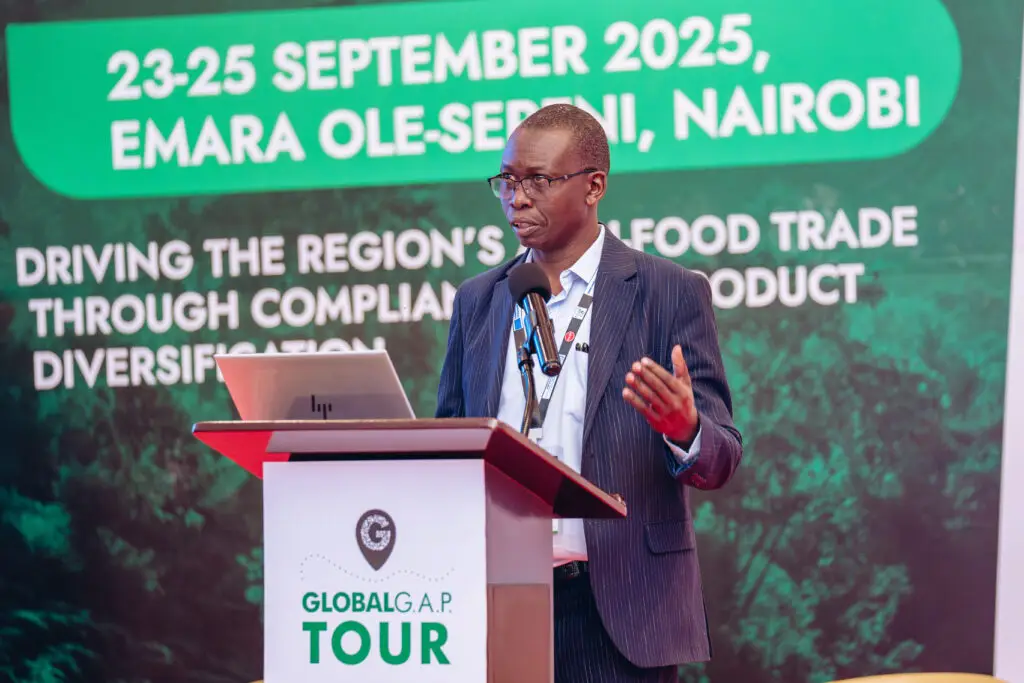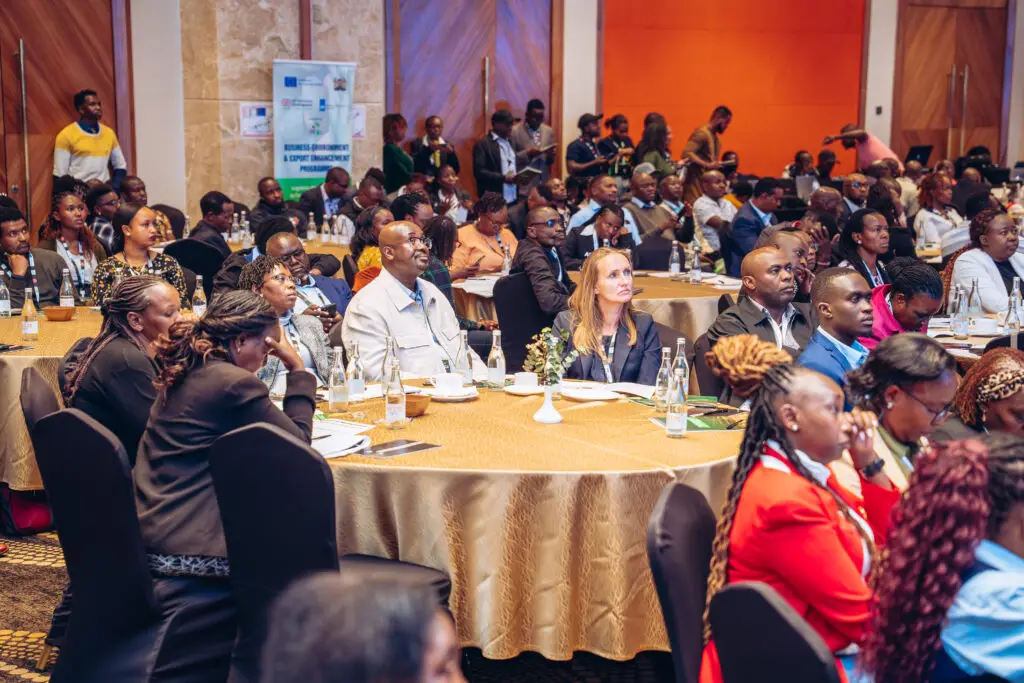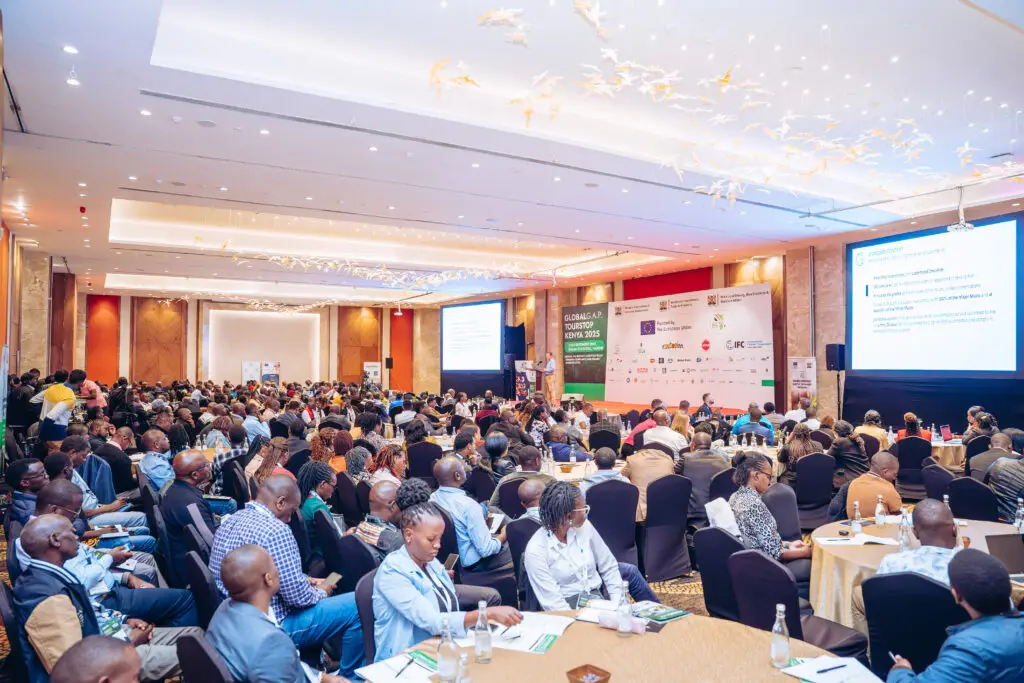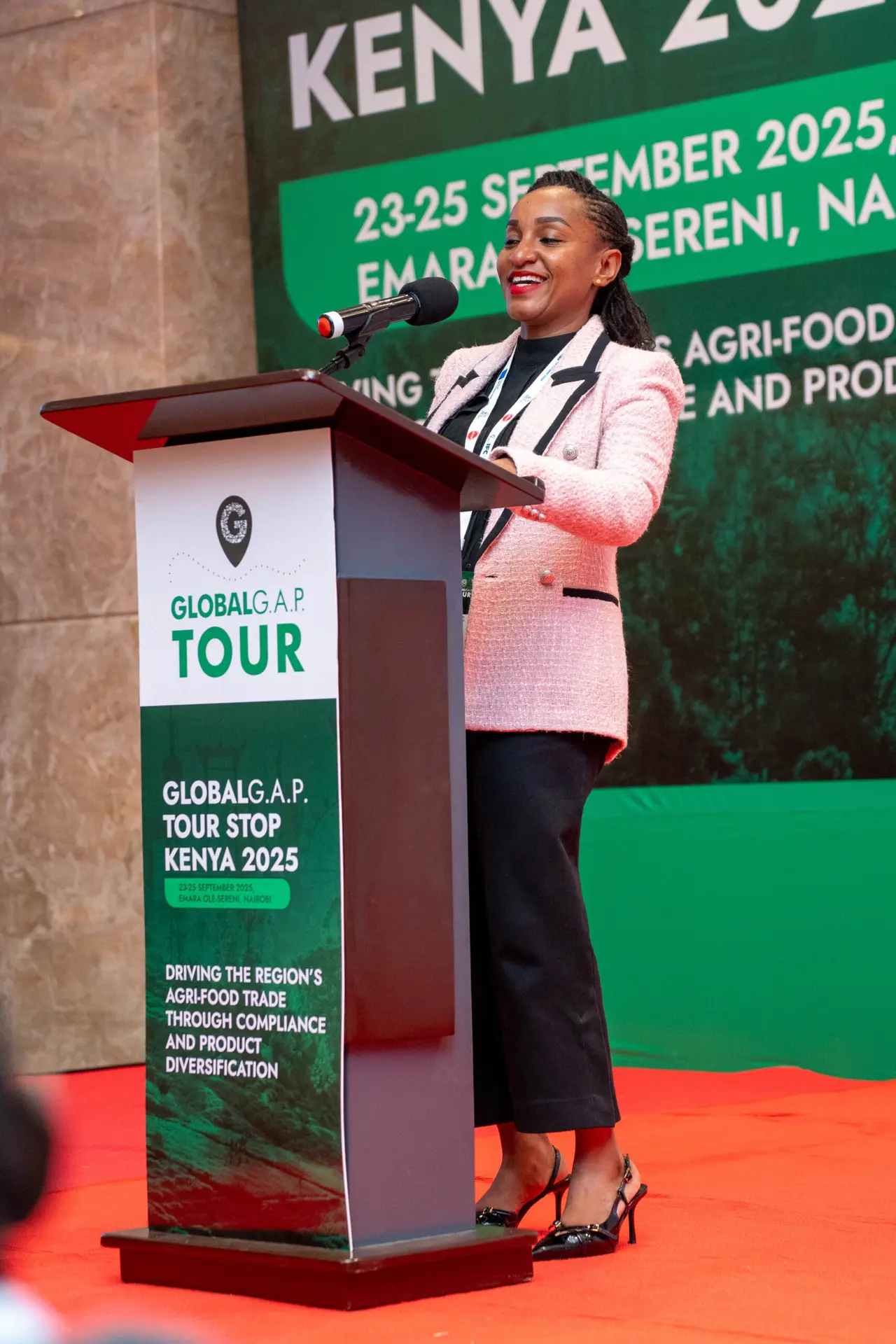At the GLOBALG.A.P. Tourstop 2025 held in Nairobi, Kenya, the message was clear: compliance is the passport to global markets.
Kenya’s agricultural exports remain a cornerstone of its economy. Horticulture contributes billions in foreign exchange earnings, creates jobs across farming, logistics and processing, and anchors the livelihoods of 6.5 million people. The sector’s success has made Kenya one of Africa’s leading suppliers of fresh produce to Europe and the Middle East. Yet this success is fragile. A single rejected consignment can undo a season’s effort, wipe out income for farmer cooperatives, and damage Kenya’s reputation among buyers.
The human consequences are visible. In 2022 more than 500 African consignments were rejected at European borders under the Rapid Alert System for Food and Feed. Kenya was among the countries affected. For farmers, every interception represents wasted investment, lost jobs and eroded confidence in international markets. Mango growers illustrate the cost. In 2021 Kenya exported mangoes worth $13 million, yet for nearly a decade producers were locked out of the EU due to fruit fly infestations. The EU mango market is valued at more than $1 billion a year. Even a modest share of that market could transform rural economies in counties like Makueni, the leading mango producing county in Kenya.
The reasons for these persistent challenges are complex. Policy fragmentation and gaps in coordination remain. Market standards differ and misconceptions abound. Maximum Residue Limits (MRLs), often portrayed as safety thresholds, are in fact trade standards that vary between jurisdictions. Divergences in MRLs between the EU and Codex create confusion for farmers and consumers alike. Overreliance on a narrow basket of crops and export destinations adds fragility. According to Kenya’s Horticultural Crops Directorate, horticultural export volumes to the EU fell by 11% in a single year, from 213,178 tonnes in 2023 to 188,956 tonnes in 2024,. Fisheries face similar risks. Kenya produces more than 170,000 tonnes of fish annually, supporting over 2 million people, yet border alerts continue to flag hygiene and traceability concerns that threaten access to high-value markets.
It was in this context that TradeMark Africa’s Kenya Country Director, Lillian Mwai-Ndegwa, underlined the importance of compliance, she said, “Compliance is a strategic investment. It builds Kenya’s credibility, attracts higher-value buyers, and strengthens our ability to diversify products and markets. Embedding compliance into production systems reduces the risk of rejection and positions Kenya as a trusted supplier in a competitive global food economy.”

Dr Andrew Edewa, Director of Standards and SPS Measures at TradeMark Africa and Chair of the National Technical Working Group (NTWG) Kenya, reinforced this, he said, “Compliance is a lever for transformation. Cutting EU interceptions, expanding certification, and piloting digital traceability aligned with AfCFTA safeguard market access, embed resilience and create opportunities for smallholders and SMEs to compete with confidence on regional and global stages.”
Kenya has already begun to act. Through EU-BEEEP, TradeMark Africa has supplied 15,000 fruitflytraps to farmers in Makueni County, trained more than 5,000 farmers to meet export requirements. Five packhouses have achieved BRCGS certification and exported over 2,000 tonnes of vegetables and dried mangoes. Nearly 1,000 farmers are progressing towards GLOBALG.A.P. and GRASP certification. These interventions are strengthening compliance systems while opening access to premium markets.

Diversification adds another layer of resilience. Moving up the value chain from fresh avocados to avocado oil, or from mangoes to pulp and dried fruit, ensures more revenue stays in Kenya and creates new jobs in processing, packaging and logistics. Regional markets also hold untapped potential. The African Continental Free Trade Area offers 1.4 billion consumers and a combined GDP of $ 3.4 trillion. By exploring new markets alongside traditional partners in Europe, Kenyan producers can spread risk and capture growth opportunities.
The challenge now is to embed compliance and diversification into production systems in a way that is scalable and sustainable. That means aligning national standards with international ones, expanding certification schemes, and ensuring that county governments, cooperatives and farmers have access to training and finance. It also means preparing for the rising sustainability agenda. Global buyers are already demanding lower-carbon supply chains, traceable production, and verifiable labour standards. Meeting these requirements will be the next frontier for Kenya’s competitiveness.

The lesson from the GLOBALG.A.P. Tourstop is clear. Compliance opens doors, and diversification keeps them open. Together they safeguard Kenya’s role as a leading exporter of fresh and processed produce, protect millions of livelihoods, and ensure that smallholders and SMEs can compete with confidence. Compliance is no longer paperwork. It is the passport that protects Kenya’s farmers and fishers, and the ticket to lead agrifood trade across Africa.


